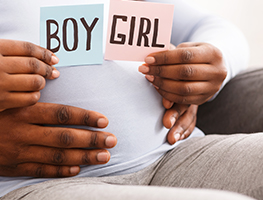How did that happen?
There is no doubt that coming to terms with an unplanned pregnancy constitutes one of the greatest emotional dilemmas a couple can face. This becomes an even greater hurdle when a woman is single or she is not in a stable relationship. Ultimately, it is the woman who has to live with the consequences of her choices about the pregnancy. This has always been the case and is always likely to be. Because no matter how evolved we become in sharing parenting responsibilities, it really is generally the woman who is, quite literally, left holding the baby.
Common emotional reactions to having an unplanned pregnancy:
-
Feeling scared and anxious
-
A sense of “Why wasn’t I more careful”, “How did that happen” & “I thought I’d be okay”
-
Feelings of isolation and being alone
-
Confusion and guilt
-
A sense of panic, lack of control and feelings of crisis
-
Disappointment and sadness
-
Surprise, happiness, shock and delight – an unplanned pregnancy can also be joyful
Where can I go for support?
In an ideal situation, family and friends will be a source of emotional and practical support. But for all sorts of reasons, this is sometimes just not possible. Religious and moral beliefs can prevent some people from being able to offer unbiased, non-judgemental support. This makes the job of sharing news of the pregnancy virtually impossible.
In the initial, early days of having an unplanned pregnancy confirmed it is normal to swing from one decision and emotion to another. Making decisions when feeling stressed and at “crisis” point is never a good idea, neither is making an important decision late at night or when feeling tired and exhausted.
Simple as it sounds, it can really help to just take each day at a time and try to stay calm and in control. For most women, it only takes a few days for the initial shock to subside and they are able to make more rational decisions.
Consider keeping a journal or diary where you can record your feelings. Often externalising feelings can help make sense of them. Weighing up the pros and cons of decisions can help as well – try writing them down in columns so they are clear to see. Don’t feel you need to do this in one session. Sleeping on problems and allowing some time to reflect and filter what is important can really help in making wise decisions.
Other sources of pregnancy support include:
-
A counsellor or therapist who works in a community healthcare centre or hospital (state or private).
-
A General Practitioner.
-
Your local clinics – their nurses and sisters are trained in supporting and advising pregnant girls and women.
Some useful questions relating to your unplanned pregnancy
-
How do I feel about being pregnant – did I consider this a possibility?
-
How does my partner feel; should I tell him, when should I tell him and what is his reaction likely to be?
-
What options do I have? How will I feel about these options both now and in a few years’ time?
-
How does this pregnancy impact on my plans around study/work/home?
-
What are my dreams and goals? How will having a baby impact on these?
-
What will be the impact on my family? This can mean very different things for women of different age groups, e.g. if you are still at school, then the impact on your parents and siblings; or if you already have other children, then the impact on them. Your cultural background also plays a huge part.



















